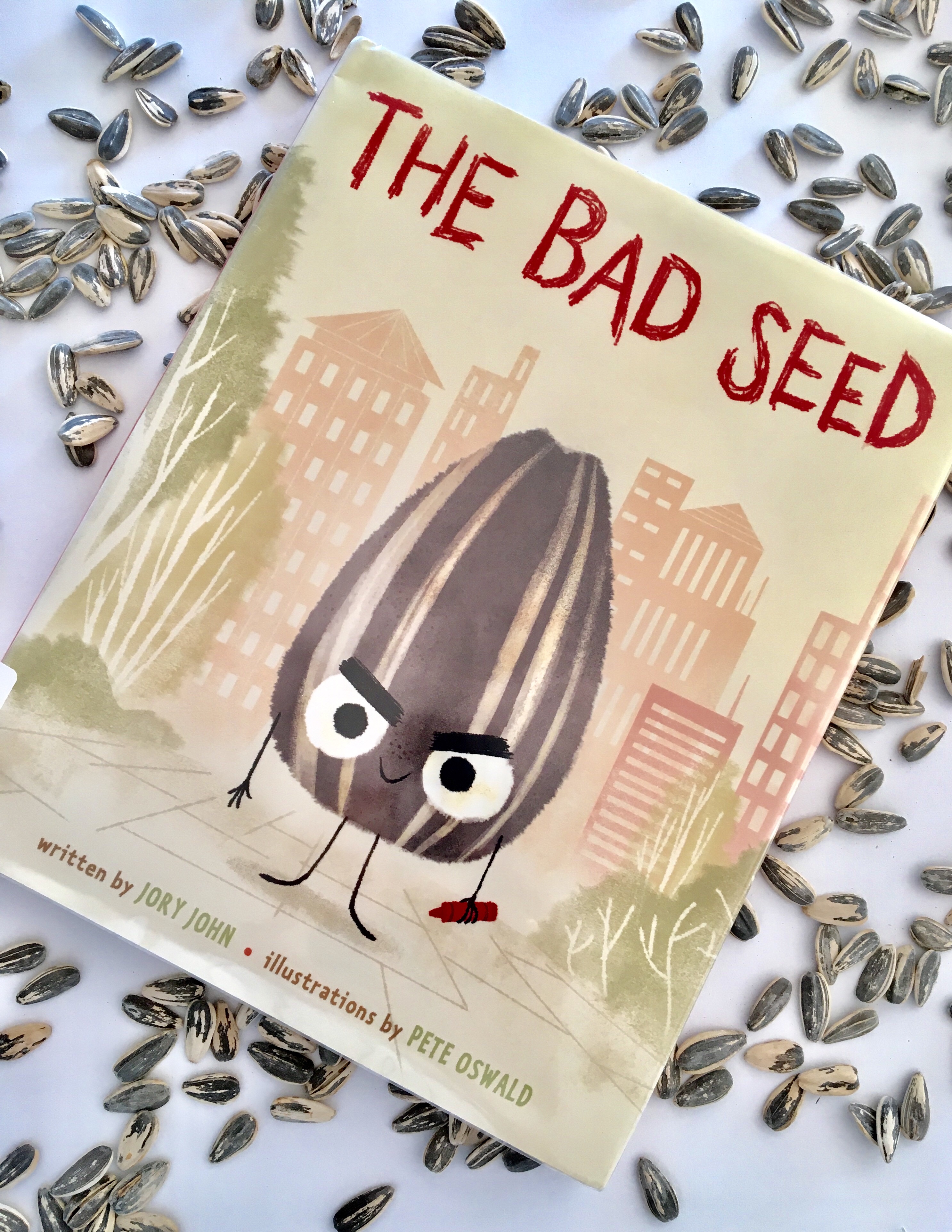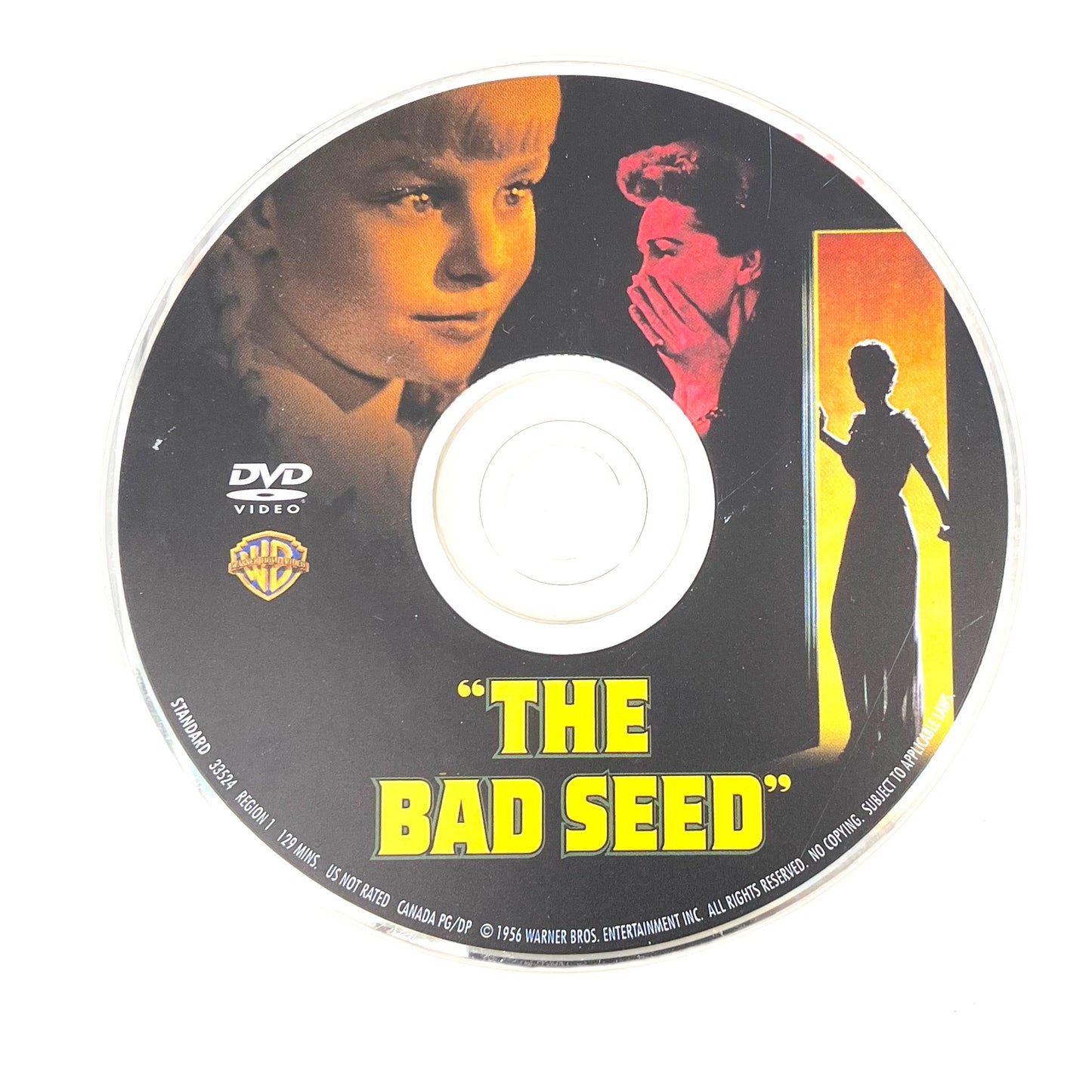Let’s talk about "The Bad Seed," a story that sends shivers down your spine while making you question the innocence of childhood. It’s one of those tales that stays with you long after the final page or scene. This isn’t just a story—it’s an exploration of human nature, morality, and the thin line between good and evil. So buckle up because we’re diving deep into this psychological thriller that has captivated audiences for decades.
If you’ve ever wondered what happens when a child isn’t as sweet and innocent as they seem, then "The Bad Seed" is the perfect case study. This classic tale has been adapted into books, plays, and films, each version bringing its own twist to the chilling narrative. At its core, it’s about a young girl named Rhoda Penmark, who appears perfect on the surface but hides a dark secret beneath her angelic facade.
What makes "The Bad Seed" so fascinating is how it challenges our perceptions of innocence and forces us to confront uncomfortable truths about human nature. We often assume that children are inherently good, but this story turns that assumption on its head. Let’s explore why this tale continues to resonate with audiences today and what lessons we can learn from it.
- How To Biwire Speakers A Comprehensive Guide For Audiophiles
- Josh Hartnett Parents Unveiling The Family Behind The Hollywood Star
A Brief History of The Bad Seed
Before we dive into the nitty-gritty details, let’s take a step back and look at where "The Bad Seed" came from. Written by William March, this novel was first published in 1954 and quickly became a sensation. It wasn’t just a book—it was a cultural phenomenon that sparked conversations about morality and human behavior.
March’s inspiration for the story reportedly came from his own experiences and observations. He wanted to explore the idea that evil isn’t always born out of external influences; sometimes, it’s innate. This controversial concept shocked readers at the time and continues to provoke debate among psychologists and philosophers alike.
Why "The Bad Seed" Still Matters Today
In a world where we’re constantly bombarded with information about parenting, childhood development, and mental health, "The Bad Seed" feels more relevant than ever. It raises important questions about nature vs. nurture, the role of genetics in behavior, and the responsibility of parents in shaping their children’s character.
- Unlocking The Power Of Agmaalrun Your Ultimate Guide
- Young Sheldon Cast The Ultimate Guide To The Nerdy Adventures Of A Child Prodigy
Here’s the thing: this story doesn’t sugarcoat anything. It presents a raw, unfiltered look at the darker side of humanity, and that’s what makes it so compelling. Whether you’re a parent, a teacher, or just someone interested in human psychology, there’s something in "The Bad Seed" that will make you think twice about the people around you.
Meet Rhoda Penmark: The Heart of The Bad Seed
At the center of "The Bad Seed" is Rhoda Penmark, the titular character whose innocence hides a sinister truth. On the surface, she’s the picture-perfect child—polite, well-mannered, and academically gifted. But beneath that charming exterior lies a cold, calculating mind capable of unspeakable acts.
Rhoda Penmark: A Closer Look
Let’s break down what makes Rhoda such a fascinating and terrifying character:
- She’s charming and manipulative, using her sweetness to get what she wants.
- Her actions are calculated and deliberate, showing no remorse or empathy for her victims.
- She has an uncanny ability to hide her true nature, even from those closest to her.
- Despite her outward perfection, Rhoda struggles with feelings of inadequacy and jealousy.
Rhoda’s complexity is what makes her so memorable. She’s not just a one-dimensional villain; she’s a fully fleshed-out character with motivations and flaws that feel eerily real.
The Psychology Behind The Bad Seed
One of the reasons "The Bad Seed" continues to captivate audiences is its exploration of psychology. The story delves into the nature vs. nurture debate, asking whether Rhoda’s behavior is the result of her upbringing or something deeper.
Research shows that genetics can play a significant role in shaping personality traits, including aggression and impulsivity. Studies have found that certain genetic markers are linked to antisocial behavior, which could explain Rhoda’s actions. However, it’s important to note that environment also plays a crucial role in development.
In the case of Rhoda, her mother discovers a family history of violent tendencies, suggesting that her behavior may be inherited. But does that absolve her of responsibility? That’s the question "The Bad Seed" forces us to grapple with.
Key Psychological Concepts in The Bad Seed
Here are some key psychological concepts explored in the story:
- Innate Evil: The idea that some people are born with a predisposition toward violence.
- Moral Development: How children learn to distinguish right from wrong and develop a sense of empathy.
- Parental Influence: The role of parents in shaping their children’s behavior and values.
- Cognitive Dissonance: The discomfort people feel when their actions conflict with their beliefs or values.
These concepts add depth to the story and make it more than just a horror tale. They invite readers to reflect on their own beliefs about human nature and morality.
Adaptations of The Bad Seed
Since its publication, "The Bad Seed" has been adapted into multiple formats, including films, plays, and TV shows. Each adaptation brings its own unique take on the story while staying true to its core themes.
The 1956 Film: A Classic Adaptation
Directed by Mervyn LeRoy, the 1956 film adaptation of "The Bad Seed" is widely regarded as one of the best. Starring Patty McCormack as Rhoda and Nancy Kelly as her mother Christine, the movie captures the tension and suspense of the original story. It was nominated for three Academy Awards and remains a favorite among fans of psychological thrillers.
What sets this adaptation apart is its attention to detail and nuanced performances. McCormack’s portrayal of Rhoda is both chilling and believable, while Kelly brings depth and complexity to the role of a mother trying to come to terms with her daughter’s darkness.
Lessons We Can Learn from The Bad Seed
While "The Bad Seed" is a work of fiction, it offers valuable insights into human behavior and psychology. Here are a few lessons we can take away from the story:
- Don’t Judge a Book by Its Cover: Appearances can be deceiving, and people aren’t always what they seem.
- Empathy Matters: Understanding others’ perspectives and emotions is crucial for building healthy relationships.
- Parenting Is a Responsibility: Parents have a duty to guide and support their children, even when it’s difficult.
- Confronting Evil: Ignoring or excusing harmful behavior only makes it worse; addressing it head-on is essential.
These lessons remind us that while "The Bad Seed" may be a fictional story, its themes are rooted in reality. They encourage us to be more aware of the people around us and to approach life with empathy and understanding.
Real-Life Parallels
Interestingly, there have been real-life cases that mirror the events of "The Bad Seed." Stories of children committing heinous acts without remorse have shocked the world and sparked debates about juvenile justice and rehabilitation. These cases highlight the importance of early intervention and support for at-risk youth.
For example, the case of Mary Bell, a British girl who was convicted of killing two young boys in the 1960s, bears eerie similarities to Rhoda’s story. Like Rhoda, Mary exhibited signs of sociopathy from a young age, raising questions about the role of genetics and environment in her behavior.
The Impact of The Bad Seed on Popular Culture
"The Bad Seed" has left a lasting impact on popular culture, influencing countless films, books, and TV shows. Its exploration of evil and morality has inspired a whole genre of psychological thrillers, many of which draw inspiration from its themes and characters.
Some notable examples include:
- The Omen (1976): A horror film about a child who is the Antichrist, echoing Rhoda’s sinister nature.
- Orphan (2009): A psychological thriller about a young girl with a dark secret, reminiscent of Rhoda’s manipulative behavior.
- Child’s Play (1988): A horror film featuring a possessed doll that preys on children, tapping into fears of childhood innocence gone wrong.
These works, among others, demonstrate the enduring legacy of "The Bad Seed" and its influence on modern storytelling.
Why The Bad Seed Continues to Resonate
What is it about "The Bad Seed" that keeps it relevant all these years later? Part of it is its timeless themes—good vs. evil, nature vs. nurture, and the complexities of human behavior. But it’s also the way the story challenges our assumptions and forces us to confront uncomfortable truths.
In a world where we’re constantly searching for answers, "The Bad Seed" reminds us that some questions don’t have easy solutions. It’s a reminder that the line between good and evil isn’t always clear, and that’s what makes it so compelling.
Conclusion: The Legacy of The Bad Seed
In conclusion, "The Bad Seed" is more than just a story—it’s a powerful exploration of human nature and morality. Through its unforgettable characters and thought-provoking themes, it continues to captivate audiences and spark meaningful conversations.
As you reflect on this tale, consider the lessons it offers and how they apply to your own life. Whether you’re a parent, a teacher, or just someone interested in human psychology, "The Bad Seed" has something to teach you.
So, what do you think? Is Rhoda Penmark a product of her environment, or is her behavior innate? Share your thoughts in the comments below, and don’t forget to check out other articles on our site for more insights into the world of literature and psychology.
Table of Contents
- A Brief History of The Bad Seed
- Meet Rhoda Penmark: The Heart of The Bad Seed
- The Psychology Behind The Bad Seed
- Adaptations of The Bad Seed
- Lessons We Can Learn from The Bad Seed
- The Impact of The Bad Seed on Popular Culture
- Conclusion: The Legacy of The Bad Seed



Detail Author:
- Name : Dr. Jeffery Romaguera III
- Username : jmurazik
- Email : iokuneva@armstrong.org
- Birthdate : 2007-03-28
- Address : 99673 McLaughlin Port Pfefferfurt, TX 93505
- Phone : (703) 702-9104
- Company : Goyette-Bednar
- Job : Hotel Desk Clerk
- Bio : Dolor facere nesciunt aut et quaerat placeat. Aspernatur doloribus possimus incidunt cumque. Expedita quis totam dolor recusandae occaecati minus nulla ut.
Socials
instagram:
- url : https://instagram.com/effertz1990
- username : effertz1990
- bio : Deleniti dolores ipsa ducimus possimus enim. Cumque quidem distinctio quas voluptatem numquam.
- followers : 1021
- following : 893
linkedin:
- url : https://linkedin.com/in/jordi.effertz
- username : jordi.effertz
- bio : Rerum aut quo ipsum.
- followers : 1564
- following : 331
twitter:
- url : https://twitter.com/jordi.effertz
- username : jordi.effertz
- bio : Laboriosam ab voluptatum aut eum dolor sit magni. Doloremque ullam neque dolores cupiditate culpa aliquid quisquam.
- followers : 616
- following : 430
tiktok:
- url : https://tiktok.com/@jordi_effertz
- username : jordi_effertz
- bio : Quia commodi id aperiam quis. Quae enim voluptatum et et.
- followers : 4723
- following : 2555